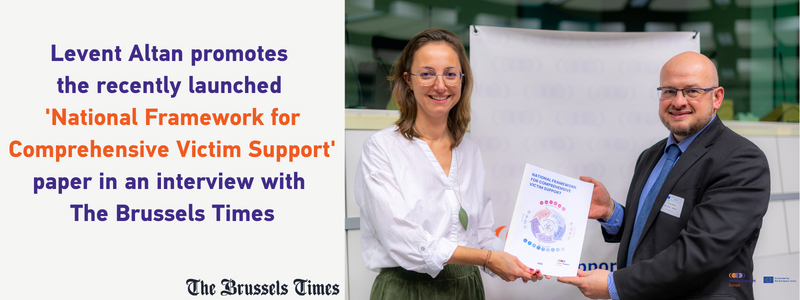Commemoration
Throughout history, Europe has faced the challenge posed by terrorist activity. In recent years, the threat of terrorist attacks in Europe has been of greatest concern, at the top of the EU agenda.
Terrorist attacks result in deaths, physical and psychological injuries as well as material damages that affect those involved.
Recognition and respect underpin the healing process of victims as individuals and community members. Under EU law, Member States must ensure that victims are treated in a respectful manner by all those they come into contact with. Recital 16 of the Victims’ Rights Directive mentions that victims of terrorism may require special attention, including social recognition and respectful treatment by society. In its EU Strategy on victims’ rights, the Commission urges Member States to ensure proper recognition for all victims of terrorism, especially since terrorist attacks are directed at the state and society as a whole.
Acts of terrorism target victims as symbols of state and society. In this context, commemorations show that society, as a whole, did not forget those who lost their lives or continue to suffer physically and psychologically due to the attack. Commemorations can take various forms: spontaneous memorials, physical memorials, online memorials, formally recognized days of remembrance and informal meetings with fellow survivors.
Commemoration is important both to direct and indirect victims, as acts of remembrance may bring them a sense of solidarity in their loss. Furthermore, remembrance and commemoration are important steps in healing on a societal level as communities will often feel overwhelmed by grief and powerlessness in the face of the terror and violence of a terrorist attack.
Memorial events and sites honoring victims’ memories express recognition as a sense of national solidarity with the victims’ loss, recognition of individual and societal suffering, and recognition that the terrorist attack and its consequences should never be forgotten.
The EU established the European Remembrance Day for Victims of Terrorism on 11 March and since 2005 (following the Madrid Bombings in 2004), on this date, Europeans remember all victims of terrorist attacks, regardless of their nationality.
You are invited to read the REMEMBERING VICTIMS OF TERRORISM – A GUIDANCE DOCUMENT, prepared by VSE – https://victim-support.eu/wp-content/files_mf/1553332194Guidancedocumentmemorials.pdf.
Psychotrauma perspective:
Commemoration is a ceremony in which a person or event is remembered. Since the dawn of civilization, man has given high priority towards the commemoration of special occasions. Every culture, nation and tradition has developed its own unique ways of honoring special occasions. Their customs and traditions are a direct product of their cultural background, history, religious beliefs and even the geography of the region they live in.
Yet, there is a common thread of themes that connects each and every one of them – all of these occasions center on universal human experiences such as love, sadness, joy, reverence, success and sacrifice. We all mourn the same things, such as losing a loved one or facing a major setback or disaster.
It seems that as a species we are instinctively driven to honor the significant moments in our lives.
Commemorations serve several purposes:
Cultivating a sense of community – it is one of the most opportune times to bond with our families and friends. We come together and get a chance to connect with those we love and care about on a deeper and more profound level.
Creating lasting memories – The human mind tends to recall memories that carry a high emotional charge to them. Sad experiences carry trauma, which we want to forget. Yet forgetting the bad also causes forgetting of the good. Commemorations remind us not only the loss but also remind us of the people we love and our good memories connected to them.
Instilling a sense of meaning and significance to our lives – The unique rituals and practices that highlight important milestones serve an important purpose. They connect us to the significance of the role that the event plays within the grand scheme of our lives. It instills a sense of reverence for life.
Taking our place in the circle of life – When we commemorate special occasions, we are essentially connecting with our humanity and the commonality that we share with all those who have been long gone before us.
Recommend0 recommendationsPublished in Uncategorised


